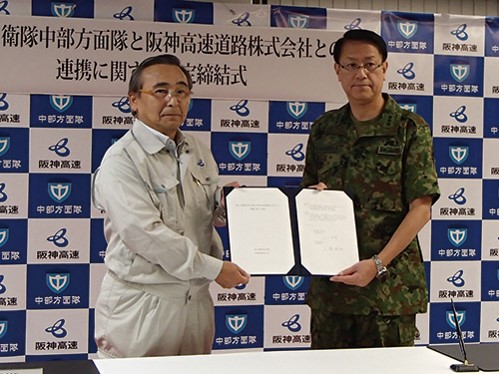
Disaster Management Manual
A manual for practitioners and decision makers!

Disaster Management Manual
A manual for practitioners and decision makers!
In the event of a large-scale disaster, not only the workload will increase due to the occurrence of the disaster, but also the road management capacity itself will decrease due to the disruption of lifelines, the disconnection of information and communication networks, the damage to road management facilities, and unfortunes to the employees who manage the roads. Therefore, there is a very high possibility that the disaster response of road managers will be limited and they will not be able to carry out a huge amount of emergency response activities promptly.
In such a situation, it would be effective to conclude in advance an "emergency cooperation agreement" between road managers and private contractors, consultant companies, and related companies covering support for various emergency response activities such as the implementation of emergency operations, emergency supply and transportation of goods, etc.
Furthermore, mutual-cooperation agreements between road administrators and local governments have also been observed, and in many cases, agreements are concluded not only for emergencies but also for cooperation during normal times.
This trend was particularly evident in Japan after the Great Hanshin-Awaji Earthquake of 1995, which left many lessons on rapid emergency recovery measures.
